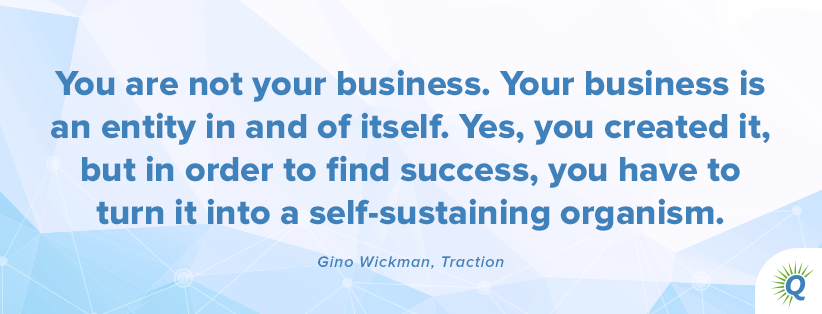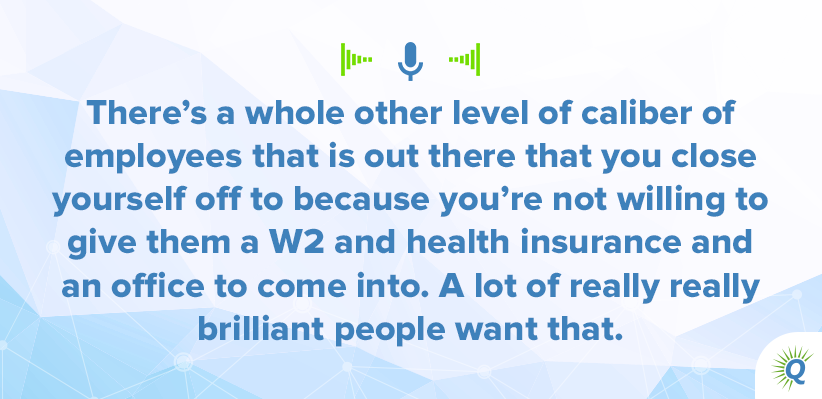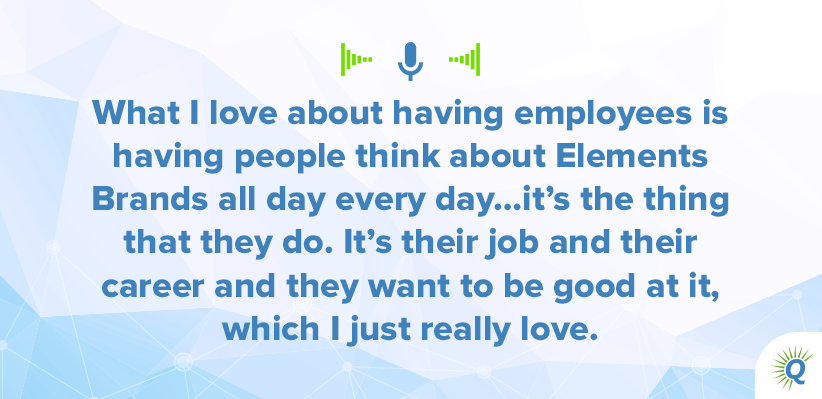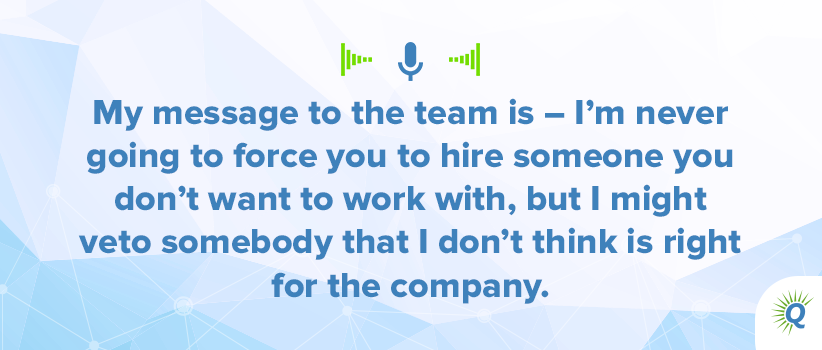Topics:
Never Miss a Beat - Get Updates Direct to Your Inbox
FILTER:


How Bill D’Alessandro Became the Tom Petty of Ecommerce
By Quiet Light
I believe Jack Kanfield was right. Most everything you want really is outside your comfort zone.
Competing offers on your business. Eight-figure exits. Your version of success.
In a recent article in The Economist’s 1834 magazine, Ian Leslie tells of a Rolling Stones’ business meeting gone bad. It ends with Mick Jagger getting punched in the face by Charlie Watts in a hotel room in Amsterdam.
The point of the anecdote is that for the great bands to make it big throughout history, someone had to step out of their liquor-soaked, smoke-hazed comfort zone and into the role of CEO.
For the Stones, that was natural-born hustler Jagger. For Tom Petty and the Heartbreakers, it was a reluctant Tom Petty.
It seems that once Petty made the gut-wrenching decision to take on the weight of that role with The Heartbreakers, it came at a big cost but with a bigger payoff.
When many of the bands of their generation had long before imploded, Petty’s was still selling out massive stadiums. They endured. For decades.


Listen to the Source of this Post:
This blog post is based on a podcast episode that we recently recorded. Listen to the full episode here:Leslie quotes Petty’s biographer Warren Zane in the article:
Bands start off as exercises in us-against-the-world idealism… [But] The ones that don’t break up before they reach a recording studio are the ones that adjust their philosophy in order to become a business.
Like Petty playing gigs with his Gainesville buddies in the early 70’s, Bill D’Alessandro a few years ago was just doing what he loved.
He was comfortable.
He had cracked the code to the successful 4-hour-work-week/digital-nomad lifestyle in ecommerce. The brand he built from scratch in 2010 was cruising along on near autopilot with revenues in the 6 figures.
But when Bill looked to the future, he saw big change on the horizon for retail in general and the household-products space in particular.


That change, and his ideas on how to capitalize on it, became a moment of truth that would soon prompt him to abandon the solopreneur lifestyle and put down roots.
Some would say he decided to try out life as a grown-up CEO. (I personally couldn’t say that without irony as I’m writing this in reindeer slippers, but some would.)
Fast forward to today when he’s building an ambitious portfolio of Elements Brands (9 so far with a tenth under LOI) and prepping to move his 22-person company into a 51,000-square-foot office/warehouse facility in Charlotte, NC.
How did Bill get from automating his business from the beaches of Thailand to this?
Let’s take a look – and see what his experience has to teach us about building a business that’s bigger than one person.
Why now is a good time to start building a portfolio
How thinking beyond the gig-based economy can pay off
“Hiring is the most important thing is business” – how do you find the right people?
What’s his hiring process exactly?
What’s Bill’s hack for finding Amazon/Facebook/Google expertise?
Why now is a good time to start building a portfolio
Bill made his first acquisition in 2013 with the idea of buying distressed brands and rolling them up onto a single ecommerce platform.
He wanted to build on the brand he’d created from scratch, but go bigger, much bigger, and acquisitions were the next step.
He acquired a third ecommerce brand in 2015, a couple per year in the years that followed, and now has investors, a board of directors, and the whole nine yards.
All the Elements Brands are concentrated in the household goods and personal-care products space.
The future that he saw in the making was a move from the massive sales of goods like laundry detergent or lip balm concentrated and shared among a few mega-brands (Proctor & Gamble owned, for instance) who could afford to reach mainstream audiences on expensive channels…
To the dispersed sales of the same household and personal goods shared among many smaller independent niche brands who can reach highly targeted audiences on social and search.


If you’ve followed the skin care industry over the last few years, for instance, you’ve seen dozens of independent ecommerce brands successfully catering to niche audiences and creating rabidly-loyal followings.
In the process, they’ve taken a major bite out of the market that once belonged solely to the mega-conglomerate Estee-Lauders and Loreals of the world (and many have been acquired as a result).
Bill realized that he could take advantage of operating leverage, replicate a lot of what he’d already done for his own brand, and ride this new retail wave by acquiring a portfolio of niche ecommerce brands.
His plans for Elements Brands gelled around the ideas of targeting niche audiences and scaling with platforms like Amazon.


It’s a plan that some of the old giants of retail may be slowly catching up to. Walmart has just started building its portfolio with a handful of ecommerce niche brands so far, and has plans to acquire more.
CEO Marc Lore said recently, “Just four brands aren’t going to do it, but imagine 40.”
How thinking beyond the gig-based economy can pay off
In the process of following his vision, Bill has taken on a great deal of responsibility and commitment that seems almost the antithesis of the typical solopreneur life that he used to enjoy.
He’s not outsourcing much, if anything, at Elements Brands, but quickly building a team to handle it all:
- Business development
- Product development
- Branding
- Amazon sponsored advertising
- Facebook advertising
- Warehouse logistics
You name it, they’re doing it in-house.


He’s spending more time on things like company culture and employee retention and zero time finding VAs and detailing the parameters of projects on Upwork.
He’s traded in the freedom of location for a new kind of freedom that he finds much more satisfying.
That’s the freedom to take a break once in a while without the business coming to a complete standstill.
When he goes to Thailand now, which he recently did on his honeymoon, he can actually unplug from his business for a time and know that everyone’s still reporting to work, new marketing campaigns are being launched, and the business is still humming along without him.
The best reward he’s gotten from all this responsibility? The real relationships he’s building with his team and in his community.
Bill has found that, for him, succeeding with other people feels even better than succeeding alone.


Instead of VAs scattered around the world checking off tasks, he now has people who are invested in his business’s success full-time.
People like his warehouse manager who’s an expert in that one aspect of Elements Brands and devotes all work bandwidth to thinking about ways to streamline that area, make it more profitable, and solve problems and inefficiencies that come up.
It’s been a game changer for him.
That same warehouse manager recently discovered a way to save the company 5 figures with a simple logistics tweak (switching from 8 packs to 12 packs of one product).
Bill points out that a 3PL or a VA who’s not physically present with and seeing your actual products and processes would never do that.
It’s experiences like that one that have made Bill something of an evangelist for hiring full-time employees over gig-based contractors.
And he’s the first to admit that hiring is anything but easy.


“Hiring is the most important thing is business” – how do you find the right people?
Having committed employees may be a game changer for Bill, but it’s no accident either…
He’s consciously put a huge amount of effort into finding the right people and keeping them.
In their warehouse, for instance, the company pays “easily 30-40% over minimum wage,” and they have zero turnover at this point.
About the hiring process, Bill is not taking it lightly these days and says, “hiring is the most important thing in business, and the more people I hire the more I realize how critical it is.”
He now feels responsible, not only to himself and to his investors, but to his staff to find the right person for the job who will fit within the positive culture that they have going.
Towards that end, he gives staff members control over the early stages of the hiring process now, and a voice in the final decision.


What’s his hiring process exactly?
In the podcast last week, Bill broke down the hiring process in detail. It looks like this:
- They list the job locally and put a great deal of effort into the job listing so that it spells out exactly the type of person they’re looking for and exactly the type of actual work that person will be doing.
- They require a written application with a couple of “gotchas.” This gotcha may be as simple as asking for a specific subject line or a PDF version of the resume, but it turns out to correlate surprisingly well with competency.
- They do a quick 15-20 minute phone screen to find out if the candidate has the personality fit they look for and if salary expectations are in line with theirs.
- They assign a written project that will take actual effort and relates directly to the work the job candidate will do if hired.
- They schedule an in-person interview. Only 2-4 applicants make it this far, and Bill sits in on this interview personally.


What’s Bill’s hack for finding Amazon/Facebook/Google expertise?
According to Bill, one of the biggest complaints he hears from other business owners is their inability to find the kind of expertise they need.
And he’s found a brilliant way around this problem.
He doesn’t look for that expertise, he creates it.
As I mentioned, Bill has become a huge advocate for hiring employees vs. contractors. Why?
- You see them one-on-one daily.
- They have no other clients to think about.
- They build up competence about your business continuously.
- You build a relationship.
He’s found that the ability to find people locally in your own town who can learn to do the work you need done and will be thrilled to have steady work with good pay and benefits is hugely underrated.


And when it comes to specialized skills that require very specific expertise, he’s found that once you invest in those employees by training them in their field, they in turn will invest themselves in your company.
It’s a win-win, and it’s not as expensive as many may think.
Bill’s found that for a couple thousand dollars he can create an expert in say YouTube advertising or Amazon sponsored ads in just a couple of months.
Some of the online resources he recommends for finding the right courses and keeping your employees current include:
- Ezra Firestone’s courses at Smart Marketer
- The courses at Amazing.com, many of which focus on Amazon
- Copywriting courses by Neville Medhora
These are some of the resources online that for a couple thousand dollars will give your company an edge by allowing you to keep experts on hand and in-house.


For those of us who feel like committing to full-time employees or renting offices are outside our comfort zones, Bill provides an inspiring example for getting uncomfortable.
In a few short years he’s grown his business from a laptop to 51,000 square feet and a Board of Directors and found a new kind of freedom in the process.
Like the great musicians whose bands stayed together and continued to make music for more than just a handful of years, he’s working on something enduring. A legacy.
And like Tom Petty and the others who stepped up in a business sense, Bill’s taking a lot of other people along with him on his rise to the top – where it’s really not that lonely after all.





